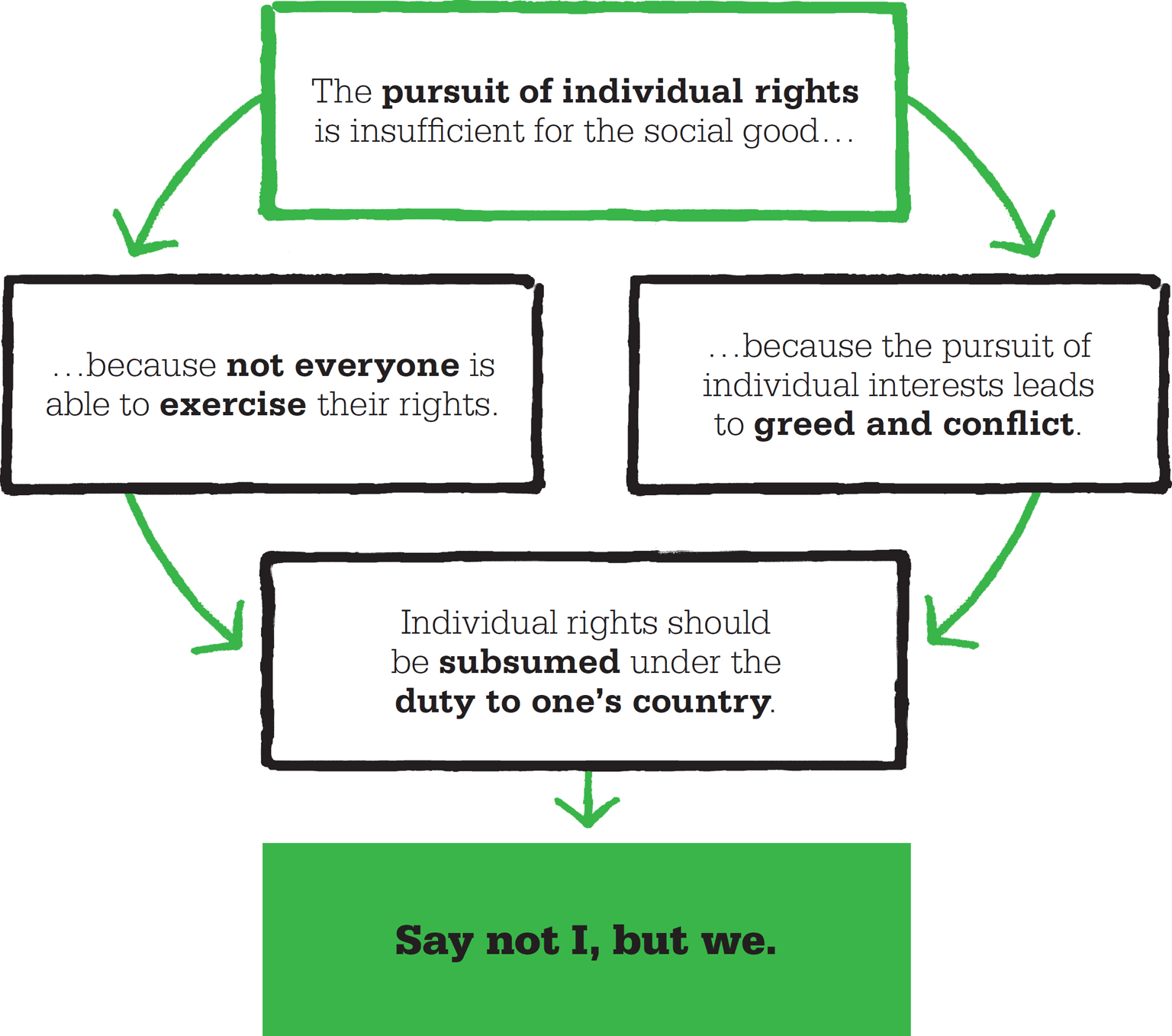
IN CONTEXT
Nationalism
Rights and duties
1789 The Declaration of the Rights of Man and of the Citizen, issued during the French Revolution, defines the universal rights of citizens.
1793 German philosopher Johann Gottfried Herder argues for the importance of the nation.
1859 In On Liberty, John Stuart Mill argues for the rights of the individual.
1861 Italy is unified.
1950s Nationalist movements rise around the world as colonies gain independence.
1957 The Treaty of Rome, signed by six European nations, founds the European Economic Community.
The Italian political thinker and activist Giuseppe Mazzini called on people to unite around the idea of the nation state. In his Essay on the Duties of Man: Addressed to Workingmen, he asked for people to place duty to their country above individual interests. Mazzini’s nationalism arose from a critique of the political changes that had taken place in Europe over the previous century. The animating idea behind these upheavals had been liberty, which was to be obtained through the pursuit of individual rights. The working masses hoped that rights would deliver material well-being.
Mazzini believed that the advancement of liberty had not been matched by progress in the condition of the workers, despite the overall expansion of wealth and commerce. Economic development had benefited the privileged few, but not the many. For Mazzini, the narrow pursuit of individual rights raised two problems. First, liberty was an “illusion and a bitter irony” for most people, who were in no position to exercise it: the right to education, for example, meant nothing to those who didn’t have the resources or time to pursue it. Second, striving for individual material interests led people to trample on each other, weakening mankind’s common bonds.

Duty before rights
Mazzini argued that the pursuit of rights came second to a higher call of duty towards humanity. This duty required individuals to cooperate toward common aims. However, it would be hard for an individual acting alone to directly serve humanity in all its vastness. Instead, according to Mazzini, God had created separate countries, dividing humanity into branches. A country was the “workshop” through which the individual could serve mankind. Duty to country—thinking in terms of “we”, not “I”—would connect individuals to the broader collective of humanity. For Mazzini, a country was much more than a group of individuals in a geographical area: it was an association of people united by brotherhood. Mazzini’s ideas inspired revolutionaries in Europe’s 1848 uprisings at a time when Italy was emerging as a unified state. In the 20th century, they roused nationalists during the struggles against colonial rule. Mazzini’s dream of cooperation between European nations was realized with the creation of the European Economic Community in 1957.
"In laboring for our own country on the right principle, we labor for humanity."
Giuseppe Mazzini

A procession through the streets of Turin marked the unification of Italy in 1861. Mazzini is seen as a founding father of the modern Italian state.
GIUSEPPE MAZZINI

The son of a doctor, Giuseppe Mazzini was born in Genoa, Italy. In his 20s he became involved with underground politics, and by 1831 had been imprisoned and then exiled for his activities. He founded a political organization, Young Italy, which fought for a unified Italy through agitation and uprising. Following his example, activists across Europe set up similar organizations.
In the wake of the 1848 European uprisings, Mazzini returned to Italy to lead a republic in Rome. After the republic fell, he found himself once more in exile. By the early 1860s, he was back in Italy, at a time when a northern Italian kingdom was being established. This didn’t conform to Mazzini’s republican vision, and he refused to take up his seat in the new parliament. He died in Pisa in 1872, two years after the unification of Italy had been completed with the Capture of Rome.
Key works
1852 On Nationality
1860 The Duties of Man and Other Essays
See also: Johann Gottfried Herder • Simón Bolívar • John Stuart Mill • Theodor Herzl • Gianfranco Miglio
